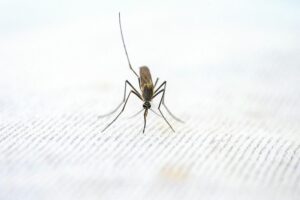After the recent bouts of rain in the Coastal Bend area, the rise in mosquito populations has become a noticeable nuisance. These post-rain periods are often critical as standing water from the rain can turn into breeding grounds for mosquitoes, leading to an increased risk of mosquito-borne diseases.
The Role of Vector Control in Managing Mosquito Populations
The City of Corpus Christi’s Vector Control team is proactive in tackling this issue, particularly during times when the risk of disease transmission is high. Dr. Dante Gonzalez from the Corpus Christi-Nueces County Public Health District emphasizes the importance of vigilance in areas known for higher mosquito activity. “We start with areas that we know historically have a higher count of mosquito breeding grounds,” Dr. Gonzalez explains, noting that wooded and vegetative areas often require more attention.
Vector Control employs various strategies to curb the mosquito population. One effective method is the use of “dunks” — doughnut-shaped products that release bacteria toxic only to mosquito larvae, thus preventing them from maturing into adults. Another approach involves using foggers on trucks during nighttime operations, dispersing pesticides that target adult mosquitoes.
Understanding Local Mosquito Species and Preventative Measures
Dr. Gonzalez highlights the primary concern around two specific types of mosquitoes in Corpus Christi — the Aedes and Culex species. “These are the mosquitoes that can carry diseases, and controlling their numbers is our priority,” he states. Unlike some cities, Corpus Christi’s Vector Control uses a standardized set of pesticides that are effective against both larvae and adult mosquitoes, rotating them periodically to avoid resistance.
Community Involvement and Health Precautions
In addition to municipal efforts, Dr. Gonzalez urges the public to take personal measures to reduce mosquito habitats. “Keeping the lawn trimmed can significantly decrease the number of breeding grounds on your property,” he suggests. Vector Control also plays a crucial role in monitoring mosquito-borne viruses. They trap mosquitoes and send them to a lab in Austin for testing. If a virus is detected, the affected areas are sprayed continuously over three days to mitigate further spread.
For those experiencing symptoms after a mosquito bite, such as fever or unexplained illness, Dr. Gonzalez advises prompt medical consultation. “If you start feeling sick after being bitten, it’s crucial to see your doctor immediately,” he adds.
A Community Effort Towards a Healthier Environment
Corpus Christi’s Vector Control efforts are pivotal in maintaining public health, especially after rainfall, when mosquito populations can surge. By understanding mosquito behavior and breeding patterns and through concerted community and professional interventions, the city aims to safeguard its residents from the potential threats posed by these pests.
Stay Connected and Protected
Follow local health updates and adhere to recommended preventive practices to stay updated with the latest news and tips on mosquito control. Your awareness and actions can make a significant difference in our community’s well-being.

